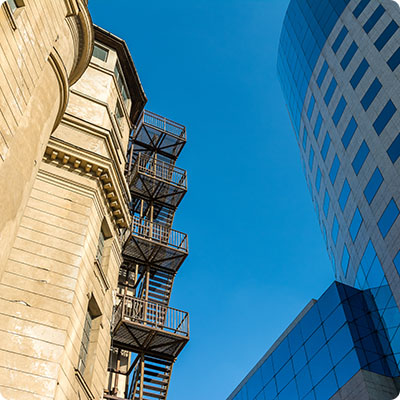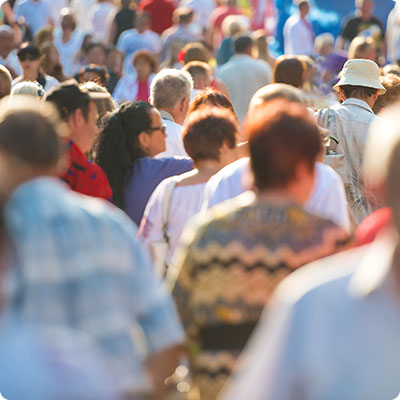Daily life
The future challenge for Russia, and by extension Siberia, is demographic: statistics show that between 1960 and 2018 population growth fell by 101%. And, according to the most reliable estimates, the phenomenon does not seem to be reversing (-25% by 2025). The birth rate confirms the trend: 12.9 births per 1,000 inhabitants in 2017, compared with 12.28 in the next six years. However, the family remains the major concern of Russian societies in general (and not the standard of living): marriage remains popular, although it will take place a little later. You'll notice it during your city excursions, especially if you stroll along the waterfront: all summer long, countless newlyweds organize just as many photo shoots. If the 2020 woman doesn't skimp on her career and personal development, she's still the master of the house (and children). She is still usually the one who cooks and takes care of the household.
About the children. School (schools are not named after a famous historical figure, but a number, as are pharmacies. A tradition inherited from the Soviet era) is compulsory from 7 to 16 years of age. This right to education and to receive it free of charge is enshrined in article 43 of the Constitution, i.e. from the first elementary class (kindergarten, which is optional, prepares 3-6 year olds for general education) to the ninth grade. The 11th grade completes the secondary education curriculum, with the examination ЕГЭ and the award of a diploma (general education and other activities. In Siberia, students naturally practice winter sports, especially ice skating and hockey). Higher education is also free of charge at the state universities, which are also of high quality and well-equipped (the recently expanded Krasnoyarsk campus is elephantine. The recently expanded Krasnoyarsk campus is elephantine, with a majority of student residences in the newly built towers).
About health. The Russian system operates on the basis of a list of free health care services, financed by the government and the regions, and the compulsory subscription of a complementary health insurance, financed by employee and employer contributions. The care covered is determined by the state (e.g. if it is the result of an accident). There is no liberal medicine in Russia: you can consult public hospitals and private facilities by appointment (the latter provide much better quality care, but much more expensive). One of the peculiarities of Russia: the market of counterfeit pharmaceuticals is flourishing
About the standard of living. It's a fact that Russian salaries are much lower than French incomes. That said, in Siberia, even in a big city, the cost of living remains affordable. In Novosibirsk (3rd largest city in Russia, 1st largest city in Siberia), you buy with 15 RUB, bread or a tram ride; 50 RUB, a little more than 1 liter of gasoline or diesel; 70 RUB, a minimum Uber® fare; 250 RUB, a meal in a stolovaya or a ticket to the philharmonic theater or a National Hockey League game ; 660 RUB, a Sim card and 5G credit card (and you'll have network everywhere, for a good while); 900 RUB, an entry in a high-end public banya (3-hour package); 2,500 RUB, a dinner at the very chic restaurant La Maison (without the drink), from 7,980 RUB, a train ticket to Vladivostok. Please note that all these consumer goods are payable online or with your phone
About the all-digital. In 2020, in Siberia, practically all your spending will be organised and paid for via your smartphone or the Internet. First of all, you benefit from wifi everywhere (beware, you only have access to it after providing a Russian phone number. For example at the airport). Then, are extremely popular in Siberia: WhatsApp® (very handy to organize an excursion with a guide, for example), Instagram®, Yandex® (the Russian version of Google®), Yandex.Maps® (the best way to find out how to get there), VKontakte® (or VK, the Russian Facebook®, much more popular than its American equivalent). Gone are the days of hailing a taxi on the street! From now on, you can order it via an app (several national or local taxi operators, see in the practical information sheets), a system that is incredibly efficient. At the supermarket (and even at the market, many shopkeepers are equipped), in any shop, on the train - in short, everywhere, the average consumer pays with his phone. The same with the CB, even for very small amounts. For those who are still attached to good old-fashioned money, there is no shortage of ATMs. Except perhaps in very isolated places and, curiously enough, on the island of Olkhon, which is nevertheless besieged by tourists. Just in case, always keep some cash with you.
Economy, science & high-tech
Siberia is a thriving economic hub, largely exploited in Soviet times. Since 2014, this legacy, in many ways dilapidated, is being revived. The former cooperatives, transformed into leading industrial giants with public and private capital, are opening up to foreign (including French) investors: agriculture (15% of Russian production, particularly cereals, livestock, potatoes and beets), fishing (2/3 of catches in the Far East), the timber industry (Russia has 1/4 of the world's reserves, the vast majority of which are in Siberia), mining and processing (oil/gas, nickel, aluminium, gold, diamond, coal, salt and rare deposits), energy (the hydroelectric network is sprawling), consumer goods, electronics, armament, aeronautics, aerospace among other lucrative sectors, positioned in the world's top 5. Former secret cities (formerly unmapped and numbered) have been transformed into international research sites (such as Krasnoyarsk-45, now Zelenogorsk, which enriches 15% of the world's uranium). In the Tukka Valley (southern shore of Lake Baikal), famous for its majestic mountain scenery and Mongolian atmosphere, the timeless village of Tibelti is home to an ultra-modern radio astronomy station: the Badary radio telescope, inaugurated in 2005, with its giant 32-metre dish and its chain of 236 antennas (its labyrinthine basements are legendary) specializing in the observation of solar activity. Finally, it is in Western Siberia that the largest scientific city in Russia is located: Akademgorodok. Founded in 1958 in the heart of the taiga, it offered scientists an almost limitless space of freedom - the only USSR laboratory authorized to work on genetics - and the city has never been closed. Dozens of institutes of all disciplines are gathered here (for example, the Institute of Hard Body Chemistry and Mechanical Chemistry, which carries out work on the recovery of waste from the food and wood industries), as well as the Novosibirsk State University. Since the 2000s, its Technopark has been one of the most efficient IT platforms in Russia, nicknamed the "Taiga Silicon". Science lovers (or not), don't miss a visit to this forested city (a real one, with its 130,000 inhabitants, its bistros and its gastronomic restaurant) that any native of the region will describe to you as a world apart. About 30 kilometres from Novosibirsk, accessible by train or bus, near the Ob Sea.
Tourism
This is excellent news for travellers: since June 2019, S7 Airlines (Siberian airline, which covers the whole territory,3rd Russian airline) operates four direct connections between St. Petersburg and Irkutsk per week. In less than 6 hours (and 5 hours time difference, so technically this trip will only take you 1 hour), you will reach the centre of Siberia and the outskirts of Lake Baikal! This novelty is symptomatic of a booming tourism industry. Professional tourism, first of all, because the numerous business and industrial centres, which multiply communication campaigns, attract foreign actors (and resources) to them. Krasnoyarsk, the leading aluminium producer, organizes the International Congress of Non-Ferrous Metals every year. This information is interesting: beware of travellers who stop there around September 20, hotels are full at this time! Then there is private tourism. In recent years, Siberia has become theNo. 1 destination for the Chinese traveller (hence the development of Baikal International Airport, located in Ulan Ude). In Irkutsk and on the outskirts of the lake, you will notice the countless Asian restaurants (Chinese, Korean, often very good and authentic), signage and other tourist brochures systematically translated into Mandarin. Target no. 2: the European tourist, attracted by the legendary Trans-Siberian Railway. Note that Yekaterinburg, Irkutsk and Khabarovsk break attendance records every year (Irkutsk, 600,000 inhabitants, 1.6 million visitors in 2018). The Russian traveller, for his part, is already a regular visitor. In this respect, many spots have not yet adapted their tools to foreign globetrotters (the museums in Krasnoyarsk, for example, only offer rare content in English). Many places and activities, which are very easy for a Russian to access, are still difficult (if not impossible) to find if you don't read Cyrillic. In view of the government's tourism policies since the Sochi Olympics (2014), local operators are concerned about enriching their offers. It is in this context that over the past five years various cities have been given a facelift (the city centre of Ulan Ude, for example). The creation of a global digital platform specific to Siberia is also planned












